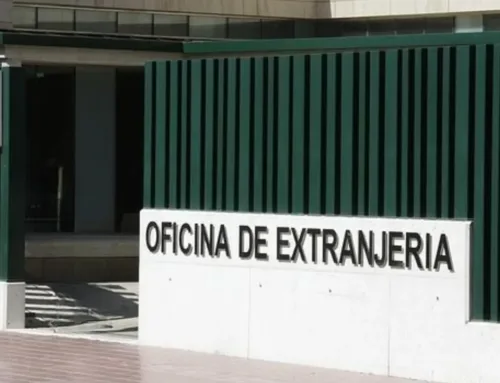
What are related-party transactions?
In the field of business management, understanding the regulations affecting your business is crucial. In this sense, having an accountant in Palma de Mallorca becomes an indispensable ally for staying informed about relevant issues, such as the topic we are addressing today: related-party transactions. It is essential to understand how these business relationships operate, as appropriate management and compliance with regulations can prevent future complications.
To understand “What are related-party transactions?”, we must consider that these are commercial relations established between individuals or legal entities that have some form of connection with each other. These transactions must be declared using Form 232. This legal framework has been implemented to prevent fraud resulting from the reduction of transaction costs, exploiting relationships existing between the involved parties. To this effect, regulations require these transactions to reflect market-consistent prices, meaning the cost that would normally be established between independent parties acting under competitive free-market conditions.
Who is considered a related party?
The current legislation, specifically the Corporate Tax Law, defines in Article 18 criteria to determine who or what entities are considered related parties. These include:
- An entity and its partners or shareholders.
- An entity and its directors or administrators, excluding matters relating to their remuneration.
- An entity and spouses or family members up to the third degree.
- Two entities belonging to the same group.
- An entity and directors of another entity provided both entities belong to the same group.
- An entity indirectly owning at least 25% of another entity’s share capital.
- Two entities whose partners or shareholders have at least 25% of the share capital in common.
- An entity located in Spanish territory and its permanent establishments abroad.
Any transfer of goods or services involving the individuals or entities described above is deemed a related-party transaction. To demonstrate that such transactions reflect market value, it is necessary for involved parties to maintain documentation supporting the agreed-upon price.
Determining the market value of related-party transactions
Once clear on what related-party transactions are, it is essential to understand how the previously mentioned “market value” is determined. Legislation establishes various methods to calculate market value, allowing the use of widely accepted alternatives if none of the prescribed methods can be adequately applied, always complying with the arm’s length principle. Selecting the appropriate method should depend on the nature of the transaction, the ability to justify the value with reliable data, and the comparability between related and unrelated transactions.
Main valuation methods include:
- Comparable Uncontrolled Price Method (CUP): This method involves comparing the price set for a good or service with the cost of the same good in transactions between independent entities under similar circumstances. For example, charging a relative the same amount you would to an external client when handling a legal case.
- Cost-plus Method: This method requires adding your usual profit margin to the acquisition cost of the good or service. If you do not have an established margin, reference the one used by independent entities for similar transactions.
- Resale Price Method: Based on the markup a reseller would achieve from a similar transaction to the one you plan to undertake. For instance, if buying office supplies intending to sell to a relative, apply a margin analogous to what you would apply in a transaction with a third party.
It is also relevant to note that regulations regarding transactions between a professional services company and its professional partners indicate that remuneration cannot be below 75% of the company’s profit.
When is it necessary to submit Form 232?
If you carry out related-party transactions while operating as a company, presenting Form 232 is compulsory. This is an informative declaration submitted electronically within the month following ten months after the fiscal period-end, usually between November 1st and 30th.
Submission of this informative form is mandatory if:
- Related-party transactions exceed 50% of the company’s total turnover in the same period and with the same valuation method.
- Specific transactions exceed €100,000.
- Transactions with a single entity or person within the reporting period exceed €250,000.
- Transactions involve entities located in tax havens.
Lastly, “specific transactions” are considered those between entities and individuals taxed under the modules regime with shareholdings equal to or greater than 25%, as well as transfers of businesses or publicly unlisted securities and those located in tax havens.
Failing to adequately carry out market valuation or retain pertinent documentation can lead to severe consequences, especially in a context where legislation concerning related-party transactions continually evolves to combat tax fraud. If you wish to stay informed and require advisory services to correctly manage related-party transactions, do not hesitate to contact our advisory firm in Palma de Mallorca.

What are related-party transactions?
In the field of business management, understanding the regulations affecting your business is crucial. In this sense, having an accountant in Palma de Mallorca becomes an indispensable ally for staying informed about relevant issues, such as the topic we are addressing today: related-party transactions. It is essential to understand how these business relationships operate, as appropriate management and compliance with regulations can prevent future complications.
To understand “What are related-party transactions?”, we must consider that these are commercial relations established between individuals or legal entities that have some form of connection with each other. These transactions must be declared using Form 232. This legal framework has been implemented to prevent fraud resulting from the reduction of transaction costs, exploiting relationships existing between the involved parties. To this effect, regulations require these transactions to reflect market-consistent prices, meaning the cost that would normally be established between independent parties acting under competitive free-market conditions.
Who is considered a related party?
The current legislation, specifically the Corporate Tax Law, defines in Article 18 criteria to determine who or what entities are considered related parties. These include:
- An entity and its partners or shareholders.
- An entity and its directors or administrators, excluding matters relating to their remuneration.
- An entity and spouses or family members up to the third degree.
- Two entities belonging to the same group.
- An entity and directors of another entity provided both entities belong to the same group.
- An entity indirectly owning at least 25% of another entity’s share capital.
- Two entities whose partners or shareholders have at least 25% of the share capital in common.
- An entity located in Spanish territory and its permanent establishments abroad.
Any transfer of goods or services involving the individuals or entities described above is deemed a related-party transaction. To demonstrate that such transactions reflect market value, it is necessary for involved parties to maintain documentation supporting the agreed-upon price.
Determining the market value of related-party transactions
Once clear on what related-party transactions are, it is essential to understand how the previously mentioned “market value” is determined. Legislation establishes various methods to calculate market value, allowing the use of widely accepted alternatives if none of the prescribed methods can be adequately applied, always complying with the arm’s length principle. Selecting the appropriate method should depend on the nature of the transaction, the ability to justify the value with reliable data, and the comparability between related and unrelated transactions.
Main valuation methods include:
- Comparable Uncontrolled Price Method (CUP): This method involves comparing the price set for a good or service with the cost of the same good in transactions between independent entities under similar circumstances. For example, charging a relative the same amount you would to an external client when handling a legal case.
- Cost-plus Method: This method requires adding your usual profit margin to the acquisition cost of the good or service. If you do not have an established margin, reference the one used by independent entities for similar transactions.
- Resale Price Method: Based on the markup a reseller would achieve from a similar transaction to the one you plan to undertake. For instance, if buying office supplies intending to sell to a relative, apply a margin analogous to what you would apply in a transaction with a third party.
It is also relevant to note that regulations regarding transactions between a professional services company and its professional partners indicate that remuneration cannot be below 75% of the company’s profit.
When is it necessary to submit Form 232?
If you carry out related-party transactions while operating as a company, presenting Form 232 is compulsory. This is an informative declaration submitted electronically within the month following ten months after the fiscal period-end, usually between November 1st and 30th.
Submission of this informative form is mandatory if:
- Related-party transactions exceed 50% of the company’s total turnover in the same period and with the same valuation method.
- Specific transactions exceed €100,000.
- Transactions with a single entity or person within the reporting period exceed €250,000.
- Transactions involve entities located in tax havens.
Lastly, “specific transactions” are considered those between entities and individuals taxed under the modules regime with shareholdings equal to or greater than 25%, as well as transfers of businesses or publicly unlisted securities and those located in tax havens.
Failing to adequately carry out market valuation or retain pertinent documentation can lead to severe consequences, especially in a context where legislation concerning related-party transactions continually evolves to combat tax fraud. If you wish to stay informed and require advisory services to correctly manage related-party transactions, do not hesitate to contact our advisory firm in Palma de Mallorca.
Seguir leyendo
Gestoría en Palma de Mallorca.
Si buscas una gestoría cerca de ti, asesoramos a empresas en el ámbito laboral, fiscal y contable. También somos una gestoría administrativa en Palma y realizamos traspasos de vehículos.













